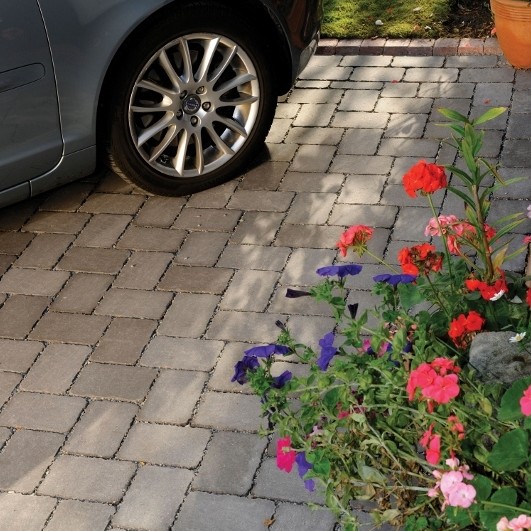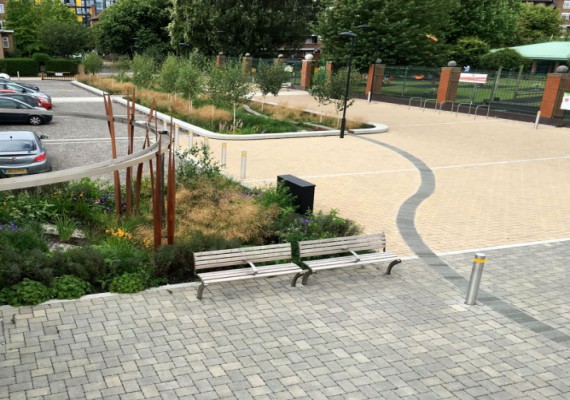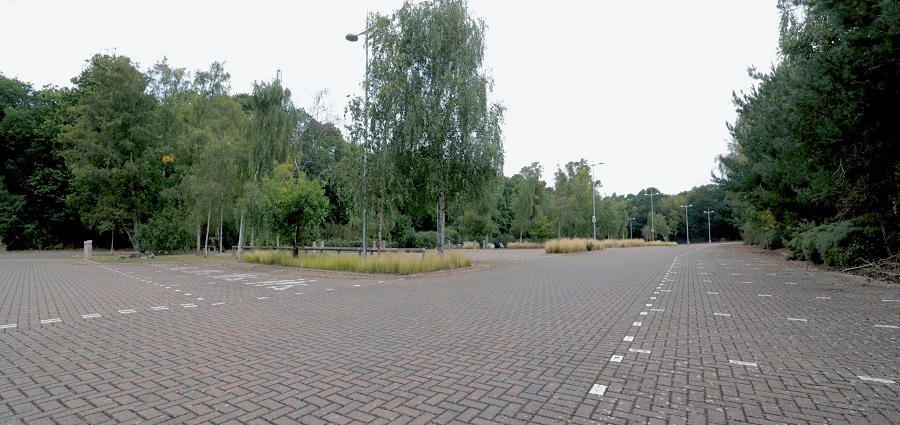
Recent planning Permitted Development rule changes aim to apply sustainable drainage (SuDS) to new or replacement paving around various non-domestic buildings as well as existing homes as part of the fight against flooding.
New guidance from Interpave has been published to help local authorities, surveyors, conveyancing lawyers, designers, contractors, landscapers and other professionals to interpret them.
Before the changes, paving anywhere in a garden related to a house or bungalow, or within industrial, warehouse, office and shop premises, with any materials was considered to be ‘permitted development’ – effectively, an automatic planning permission without needing a planning application. But not any more. As awareness of the restrictions grows, there are calls for the legality of recent paving to be covered in conveyancing pre-contract enquiries, home-buyers’ reports and valuations.
For industrial, warehouse, office and shop premises, permitted development rights have been taken away from new or replacement paving on a property, unless it is permeable paving or drains water onto a permeable area within the curtilage of the property. Otherwise planning permission will be needed and should be refused in line with policies to encourage SuDS. In England, these measures took effect in April 2010 and in Scotland, similar measures are being considered now.
For domestic properties, similar changes take away permitted development rights from new or replacement drives or other paving, unless it is permeable paving or drains water onto a ‘rain garden’ area within the property. In England, these measures took effect in October 2008 and apply to paving over 5m2 and in the front garden only. But in Scotland, they apply to work initiated after 6th February 2012 and apply to paving of any size between the house and any street - therefore not just front gardens. Both English and Scottish governments refer to a guide on permeable paving from the Department of Communities and Local Government and this, in turn, refers to the Interpave website and guidance documents for more information.
To satisfy the requirements, there is a growing choice of concrete block systems available from Interpave manufacturers, designed specifically for permeable paving. Essentially they have the same impressive performance as conventional precast concrete paving products, being slip resistant, durable, strong and sustainable. And today there are more shapes, styles, finishes and colours than ever to give real freedom of choice.
The difference with concrete block permeable paving is its enlarged joints, filled with a permeable aggregate specifically chosen for each product – but never sand (used with conventional block paving, which becomes impermeable over time). This ensures that water will continue to pass through the joints over many years. The materials used below the blocks are also specifically selected to accommodate water, unlike conventional drive and road construction.
Permeable paving is specifically designed to combine drainage while supporting vehicles, and many pollutants are substantially removed and treated within the paving layers before the water leaves it. It can be laid level and still avoids puddles without the need for drainage gulleys and pipes, providing a safe, firm surface for everyone.
Concrete block permeable paving is a unique SuDS technology which has proven itself over decades of successful use in the UK and around the world.










